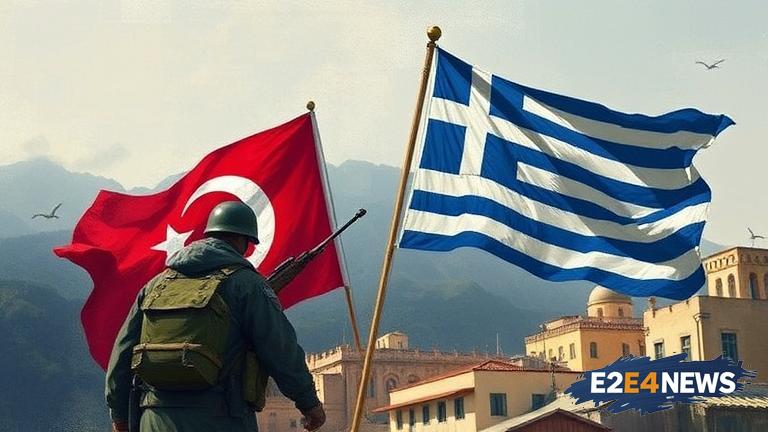A prominent Turkish defense academic has stated that Greece would be unable to emerge victorious in a war against Turkey, emphasizing the substantial military differences between the two countries. This assertion comes amidst heightened tensions in the Eastern Mediterranean, where both nations have been engaged in a dispute over energy resources and territorial claims. The academic, who wished to remain anonymous, pointed to Turkey’s superior military capabilities, including its larger army, navy, and air force. Furthermore, Turkey’s defense budget is significantly higher than that of Greece, allowing it to invest more in modernizing its military equipment and technology. The Turkish military has also been involved in various international conflicts, gaining valuable experience and expertise. In contrast, Greece’s military has been focused primarily on defensive operations, with limited experience in large-scale conflicts. The academic also highlighted Turkey’s strategic location, which provides it with access to multiple regions and facilitates the deployment of its military forces. Additionally, Turkey has been strengthening its relationships with other countries in the region, potentially securing future alliances and support. Greece, on the other hand, has been relying heavily on its membership in the European Union and NATO, which may not provide sufficient support in the event of a conflict with Turkey. The Turkish academic emphasized that a war between the two nations would have severe consequences for the entire region, including the potential disruption of energy supplies and the destabilization of the global economy. The international community has been calling for calm and diplomacy to resolve the ongoing disputes between Greece and Turkey. However, the situation remains volatile, with both countries engaging in a war of words and escalating their military presence in the region. The United States, a key player in the region, has been urging both nations to seek a peaceful resolution, while also maintaining its commitment to NATO and the defense of its allies. The European Union has also been involved in efforts to mediate the conflict, with several member states expressing concern over the rising tensions. Despite these efforts, the situation remains uncertain, with both Greece and Turkey refusing to back down from their claims. The Turkish academic’s statement has been seen as a warning to Greece, emphasizing the futility of pursuing a military conflict with Turkey. However, Greece has responded by stating that it will continue to defend its sovereignty and territorial integrity, regardless of the potential consequences. The dispute between Greece and Turkey is complex and multifaceted, involving historical, cultural, and economic factors. The two nations have been at odds for decades, with the current tensions representing a culmination of long-standing grievances and competing interests. As the situation continues to unfold, the international community remains vigilant, aware of the potential risks and consequences of a conflict between Greece and Turkey. The Turkish academic’s statement serves as a reminder of the need for diplomacy and dialogue in resolving the ongoing disputes, rather than resorting to military action. Ultimately, a peaceful resolution will require compromise and cooperation from both Greece and Turkey, as well as support and engagement from the international community. The fate of the region and the global economy hangs in the balance, as the world watches with bated breath the developments in the Eastern Mediterranean.
